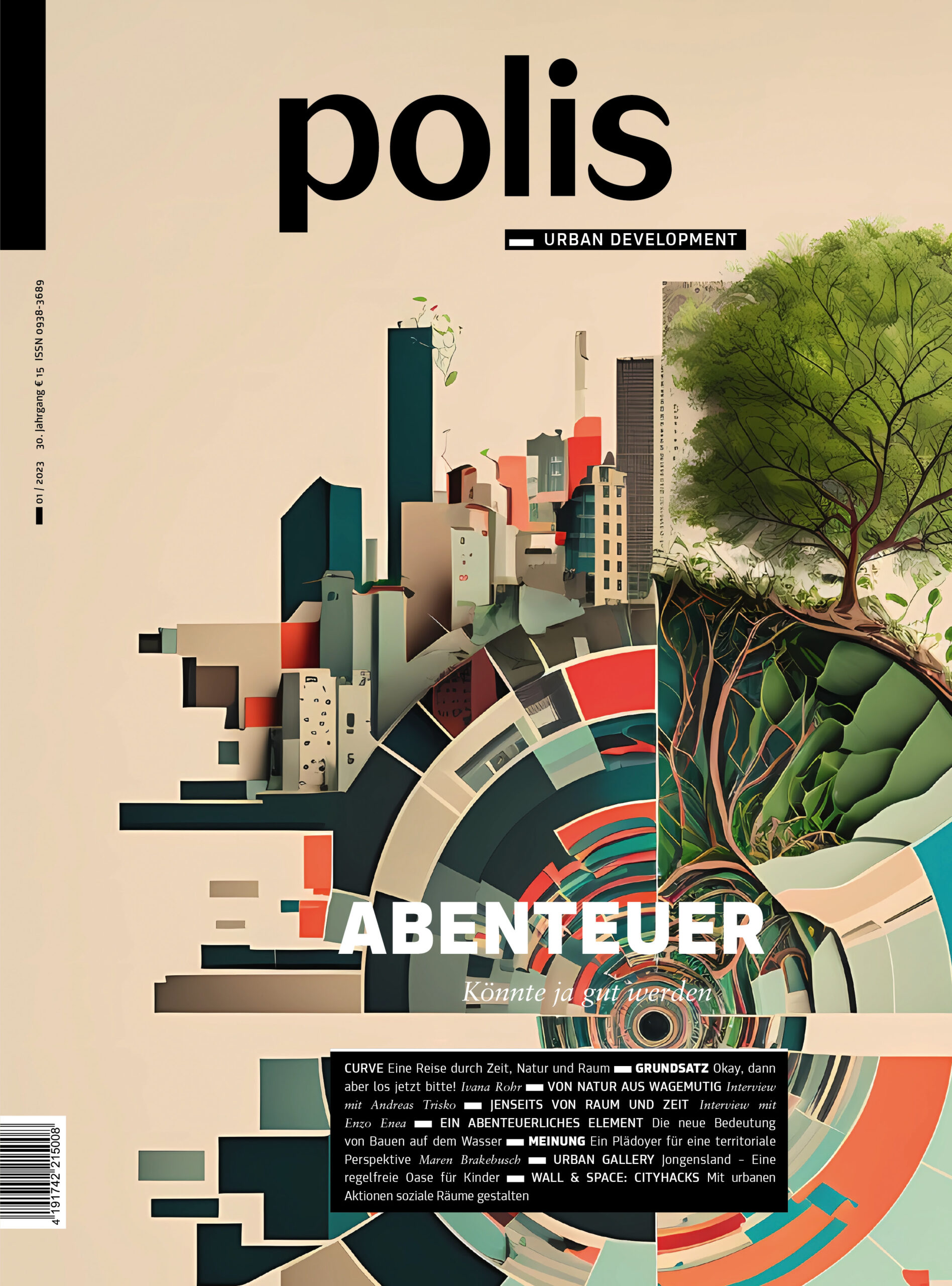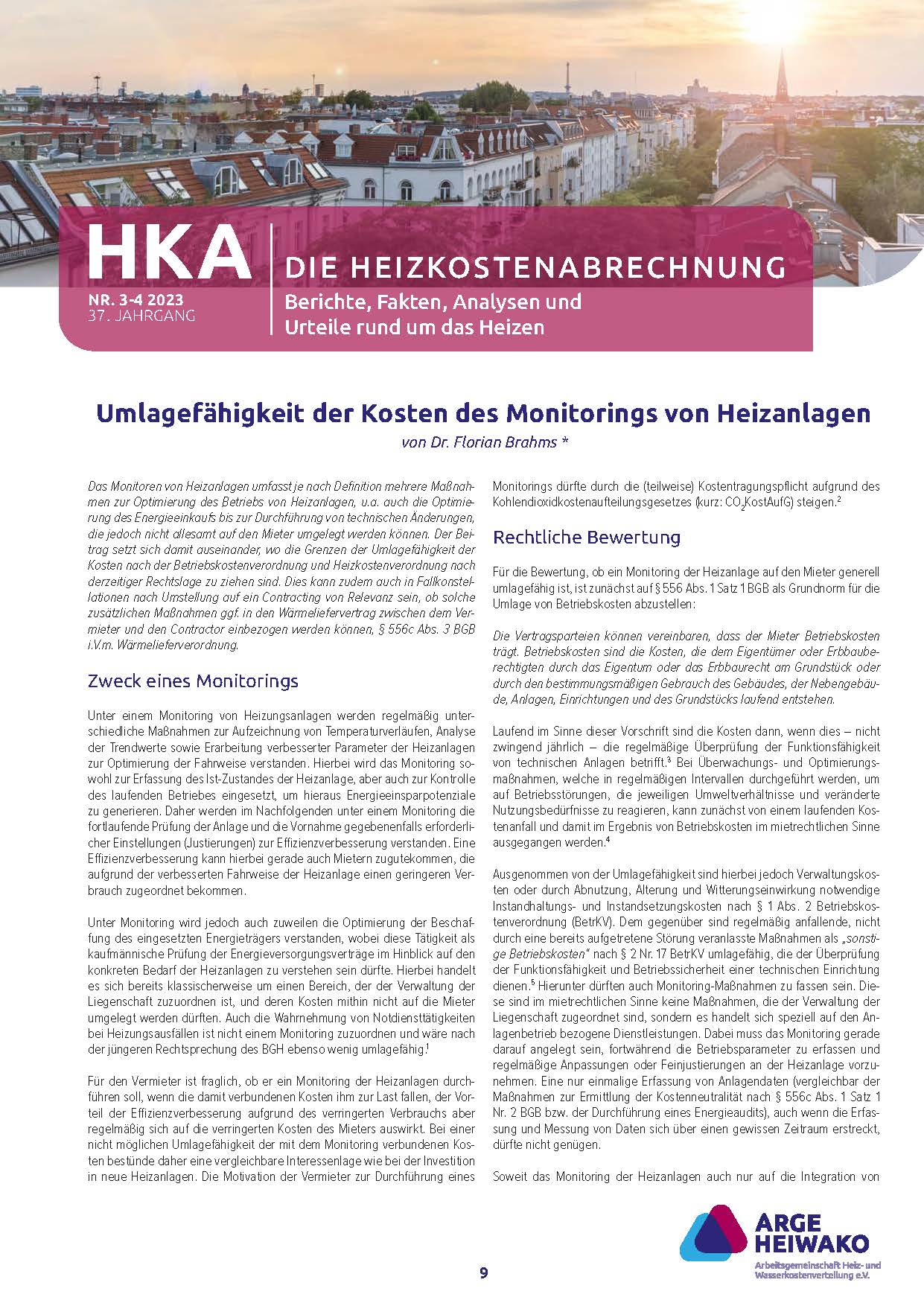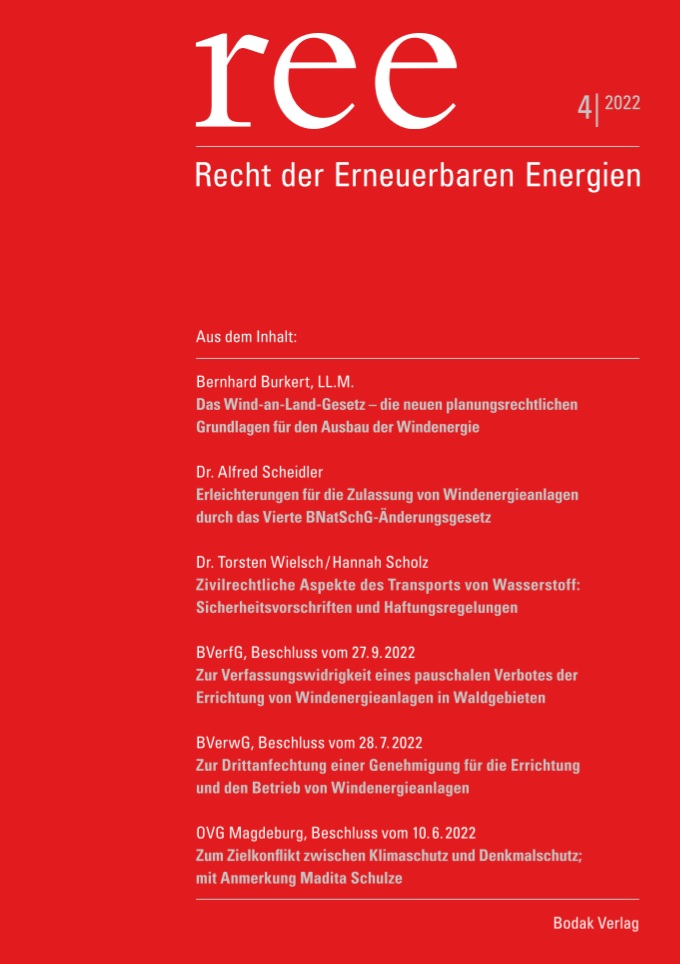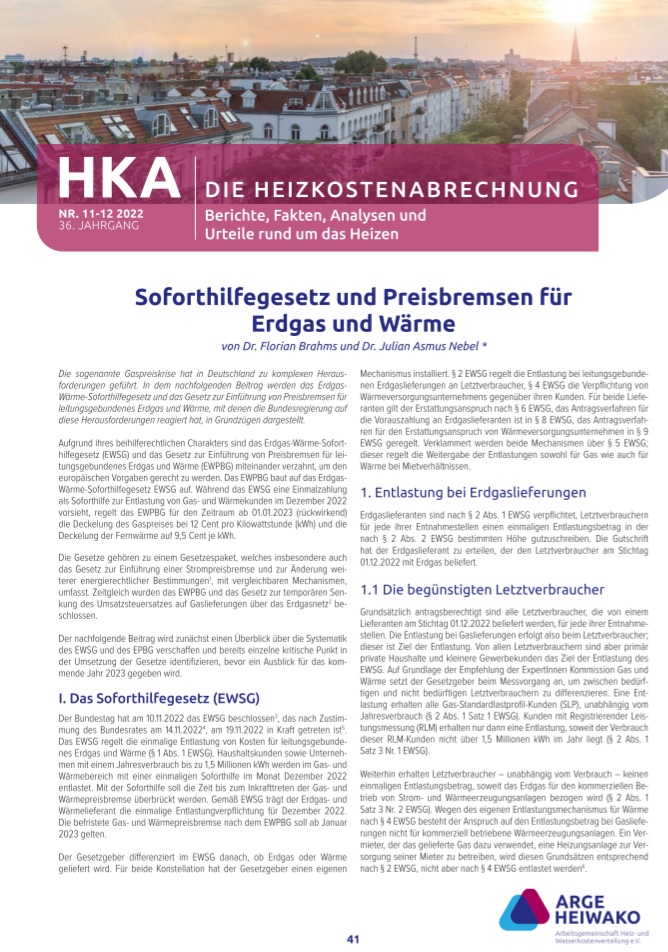
Publications
Publications of our lawyers
Energy law is an interdisciplinary subject that has intersections with general commercial law, company law, administrative law, construction law, public procurement law and energy tax law, among others.
-
![Cover_Abenteuer_Front-scaled]()
“Accelerating the energy transition through open regulations” by Nebel
Urban energy concepts arise from the situation, the requirements and the possibilities on site and cannot be controlled “from above” according to a uniform pattern. What new legal developments are there here?
Autor:
polisURBAN DEVELOPMENT 01/2023 p.60 f.
-
![web_232308-polisMobility_data-komprimiert_Cover-scaled]()
“Operation of charging columns in municipalities” by Oberpichler
Expansion of the charging infrastructure taking into account municipal allocation policies.
Charging points on municipal land play an important role in promoting electric mobility. On the one hand, improved accessibility to charging infrastructure in cities and municipalities can help make the purchase of an electric vehicle a viable option for citizens. On the other hand, the operation of charging points can also generate revenue and support local businesses.
Autor:
polisMOBILITY 01/2023, p. 72 ff.
-
![Bildschirmfoto 2023-03-24 um 16.20.12]()
„ «Rote Plakette» for Germany’s air pollution control – Local air protection in the field of tension between European and German law” by Uhlmann
In several European Member States, the nitrogen dioxide limit values of the Air Quality Directive have been exceeded for years, thus violating EU law. In May 2018, the EU Commission initiated the final step of the infringement proceedings and brought an action against the Federal Republic of Germany. The ECJ will now put the German air pollution measures to the test – it remains to be seen whether the ECJ will show Germany the “red card” for its failures. In the meantime, this article is dedicated to the question of how the structure of competences between the EU, the federal government and municipalities in the enactment of local environmental protection measures in air pollution control fragments and interlocks again in the context of legal action by private individuals and environmental associations. The article presents the developments of the current infringement proceedings and attempts to anticipate the central issues of the lawsuit, which has not yet been published.
Autor:
in: sui-generis 2018, p. 443
-
![Bildschirmfoto 2023-03-24 um 16.25.41]()
“Count water sensibly – and pay less. Proposal to avoid unreasonably high costs through changes to the measurement and calibration law for water meters”. by Uhlmann
In most federal states, the use of residential water meters is mandatory. Due to the federal calibration regulations, these water meters must be replaced every five to six years. This is associated with high costs for the users of the flats.
Autor:
-
![Bildschirmfoto 2023-03-24 um 16.25.49]()
„EU Law and Policy on Energy Security. Streamlining of Environmental Impact Assessments for Cross-border Electricity Infrastructure“ by Uhlmann
Europe’s energy infrastructure is undergoing a fundamental change as the completion of the EU’s internal market and the increasing integration of energy from renewables place increasing demands on the technical modernisation and interconnection of national grids.
The legal framework for the construction of such energy infrastructure is provided by the 3rd Energy Package and the TEN-E guidelines. They designate a special infrastructure category – the Project of Common Interest (PCI).Autor:
-
![HKA_3-4_2023_Ansicht_Seite_1]()
“Apportionability of the costs of monitoring heating systems” by Brahms
Depending on the definition, monitoring heating systems comprises several measures to optimise the operation of heating systems, including the optimisation of energy purchasing up to the implementation of technical changes, which, however, cannot all be apportioned to the tenant. The article deals with where the limits of the apportionability of costs under the Operating Costs Ordinance and Heating Costs Ordinance are to be drawn according to the current legal situation. This can also be relevant in case constellations after conversion to contracting, whether such additional measures can be included in the heat supply contract between the landlord and the contractor, § 556c para. 3 BGB in conjunction with the Heat Supply Ordinance. Heat Supply Ordinance.
Autor:
HKA 3-4 2023 S. 9 - 16
-
![180]()
“Commentary on the provisions of §§ 1 to 15 of the Hydrogen Network Charges Ordinance (WasserstoffNEV)” by Brahms / Frohberg
Autor:
Elspas/Graßmann/Rasbach, Berliner Kommentar zum Energiewirtschaftsgesetz, 2nd ed. 2023 i.E.
-
![Ree Madita]()
“OVG Magdeburg, decision of 10.6.2022 – 2 L 21/20 On the conflict of objectives between climate protection and monument protection”; with comments by Schulze
Autor:
Ree issue 4/2022, p. 224 ff.
-
![HKA]()
“Emergency aid law and price brakes for natural gas and heat” by Brahms/Nebel
Autor:
Die Heizkostenabrechnung, HLA No. 11-12 2022, 36th year, p. 41 ff.
-
![PHOTON 9-2018]()
“Common sense- the dazzling effect of photovoltaic systems is often the subject of neighborhood disputes.” by Hauer
When it comes to subjectively perceived impairments in court proceedings, the “common sense of an average person” often plays a decisive role – even if no one knows how to define this feeling exactly. Quarrels about the dazzling effect of solar modules take place in exactly this confusing area. A Higher Regional Court recently has issued a ruling on this which urges planners and system operators to be even more careful than before.
in: Photon – Das Solarstrom-Magazin 9/2018, S. 46 ff.









